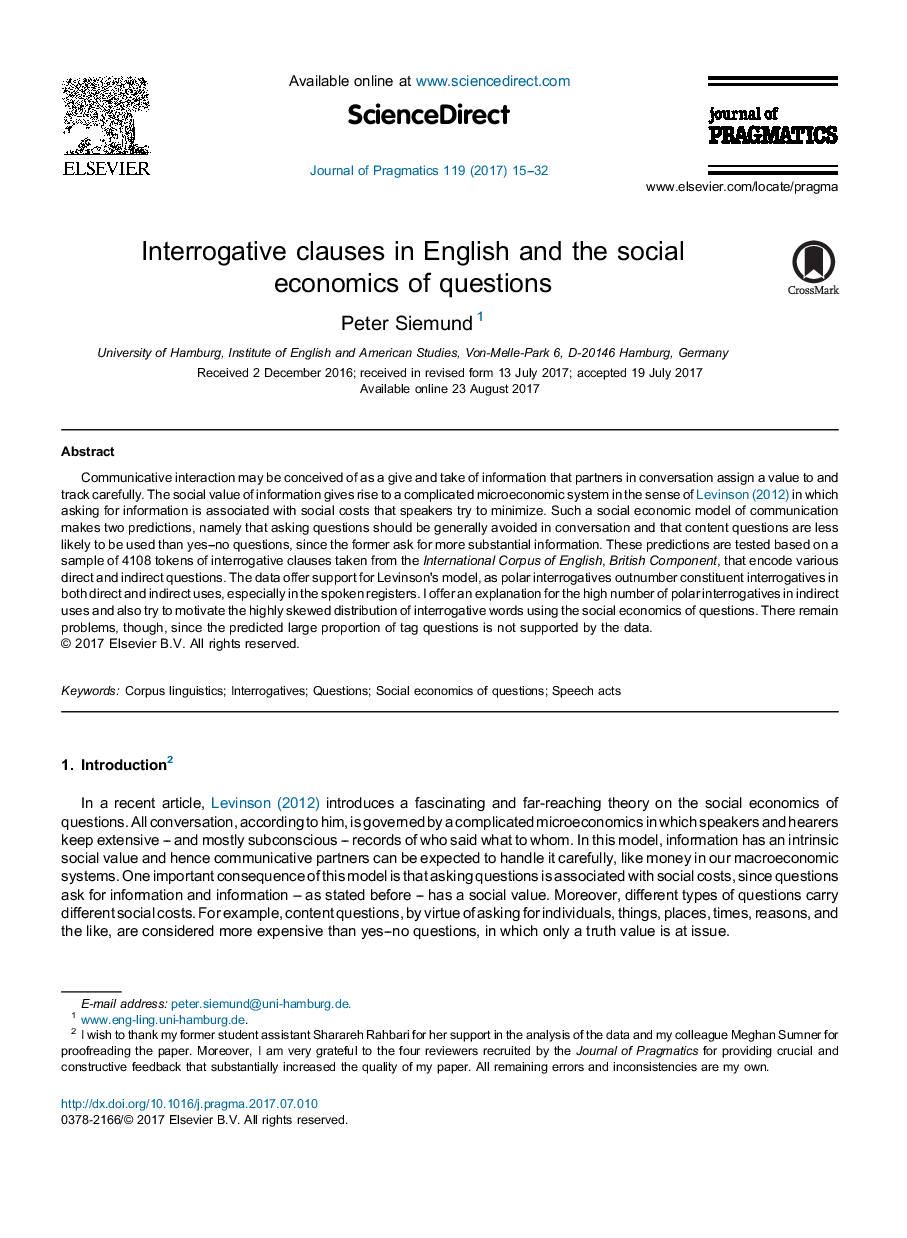| کد مقاله | کد نشریه | سال انتشار | مقاله انگلیسی | نسخه تمام متن |
|---|---|---|---|---|
| 5042701 | 1474681 | 2017 | 18 صفحه PDF | دانلود رایگان |
- In my contribution, I test Levinson's (2012) social economics of questions based on a sample of 4108 tokens of interrogative clauses taken from the International Corpus of English, British Component, that encode various direct and indirect questions.
- The data offer support for Levinson's model, as polar interrogatives outnumber constituent interrogatives in both direct and indirect uses, especially in the spoken registers.
- I offer an explanation for the high number of polar interrogatives in indirect uses and also try to motivate the highly skewed distribution of interrogative words using the social economics of questions.
Communicative interaction may be conceived of as a give and take of information that partners in conversation assign a value to and track carefully. The social value of information gives rise to a complicated microeconomic system in the sense of Levinson (2012) in which asking for information is associated with social costs that speakers try to minimize. Such a social economic model of communication makes two predictions, namely that asking questions should be generally avoided in conversation and that content questions are less likely to be used than yes-no questions, since the former ask for more substantial information. These predictions are tested based on a sample of 4108 tokens of interrogative clauses taken from the International Corpus of English, British Component, that encode various direct and indirect questions. The data offer support for Levinson's model, as polar interrogatives outnumber constituent interrogatives in both direct and indirect uses, especially in the spoken registers. I offer an explanation for the high number of polar interrogatives in indirect uses and also try to motivate the highly skewed distribution of interrogative words using the social economics of questions. There remain problems, though, since the predicted large proportion of tag questions is not supported by the data.
Journal: Journal of Pragmatics - Volume 119, October 2017, Pages 15-32
